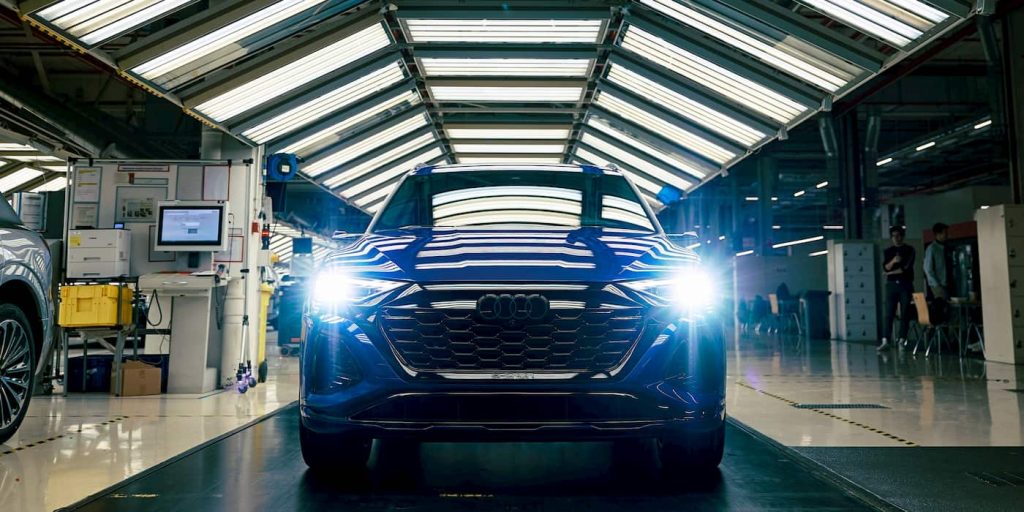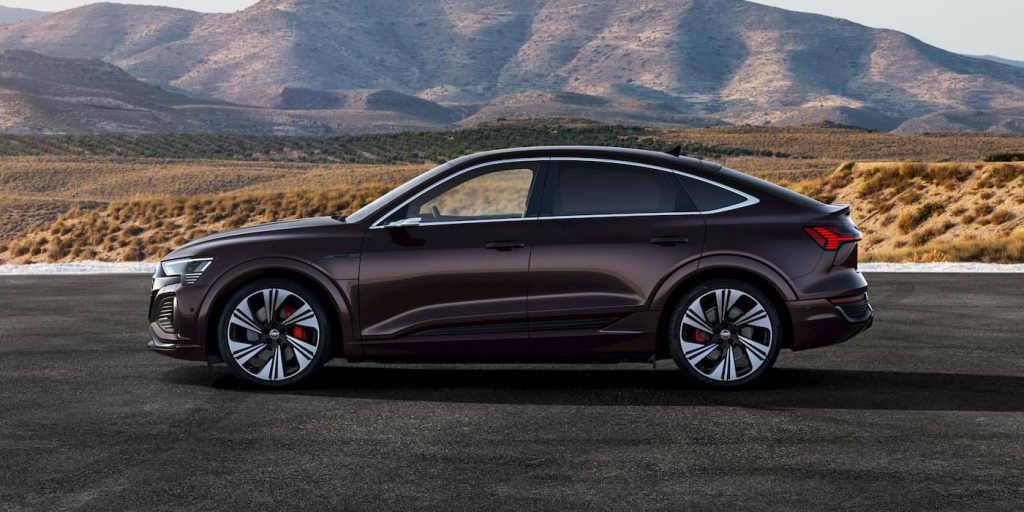Volkswagen may close its first European plant ever. As it looks to cut costs amid falling sales of electric vehicles, Volkswagen has warned that the possible closure of Audi’s Brussels assembly plant is an option.
It’s been 26 years since the doors closed at VW’s assembly plant in Westmoreland, Pennsylvania, its last plant closure.
However, this may change soon. Volkswagen’s Audi said in a statement on Tuesday that it is considering ending production of the Q8 e-tron early. The Q8 e-tron is the only model built at Audi’s Brussels site.
The management of the plant has already contacted the Company Council, announcing the plans for the restructuring of the site.
Audi said closing the plant would be possible if no alternatives were available. “The announcement of the intention does not mean that a decision has been made,” according to Volker Germann, CEO of Audi Brussels. He added, “We will consider all perspectives.”
The move comes after Audi sales fell over 11% in the second quarter of 2024. Audi claimed the decline is part of a wider global slowdown in the electric luxury segment.

Volkswagen aims to close the Audi EV factory in Brussels
Audi’s Q8 e-tron and Q8 Sportback e-tron, both built in Brussels, have been hit hard. Volkswagen sold 17,900 Audi Q8 e-tron models (including the Sportback) in the first half of 2024, up from 19,500 that had been delivered in 1H 2023.
The decline comes as overall VW Group EV deliveries fell to 317,200 in the first half of the year from 321,600 last year (-8%). Its best-selling EVs were as follows:
- VW ID.4 and ID.5: 86,800
- VW ID.3: 66,200
- Audi Q4 e-tron: 52,100
- Škoda Enyaq: 29,400
- CUPRA Born: 18200
- Audi Q8 e-tron: 17,900
- Volkswagen ID. Edge: 14600
Volkswagen was hit particularly hard in China (down nearly 20% year-on-year) as domestic EV makers like BYD continue to launch longer-range, lower-priced electric cars. The company cited a “highly competitive environment” for the fallout.

Despite this, VW said its order bank in Western Europe grew to around 170,000. With the new VW ID.7 Tourer, the Audi Q6 e-tron (see our new review) and the Porsche Macan Electric set to hit the market, the brand expects the momentum to change.
Electrek’s Take
Volkswagen cut its operating return guidance from 7 to 7.5% to 6.5 to 7% after declining sales of electric vehicles. Its luxury brand, Porsche, also cut its earnings outlook.
Porsche cut its profit forecast to 3.5 billion euros ($3.8 billion) from 5.5 billion euros ($6 billion) after Taycan deliveries fell 51% in the second quarter. The luxury brand expects demand to grow with the updated 2025 Taycan and new Macan Electric due out in the second half of the year.
However, will Volkswagen turn things around in China? One of its (if not) most important markets. VW faces stiff competition from domestic EV makers such as BYD.
BYD launched the new Dolphin EV 2025 this week. The new Dolphin, one of BYD’s best-selling EVs, still starts at under $13,700 (RMB 99,800) but has even more range.
Although BYD is best known for its low-cost electric vehicles such as the Dolphin, Atto 3 and Seagull (Dolphin Mini overseas), it is expanding into electric luxury vehicles, pickup trucks, mid-size SUVs and supercars.
BYD’s new electric luxury sedan, the Yangwang U7, hit showrooms in China this week as Porsche’s latest challenger.
Porsche hopes its new Macan Electric, equipped with CATL batteries, can compete in the world’s largest electric vehicle market.
What do you guys think? Can Volkswagen turn things around? Or will things only get worse from here? Let us know your thoughts below.
FTC: We use automatic affiliate links to earn income. More.